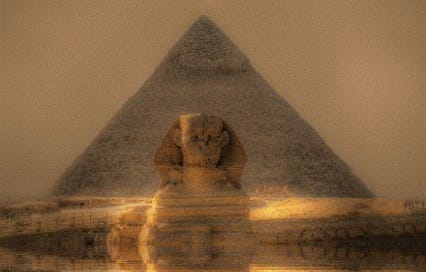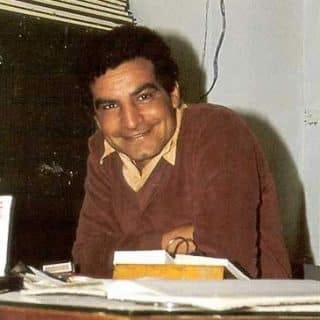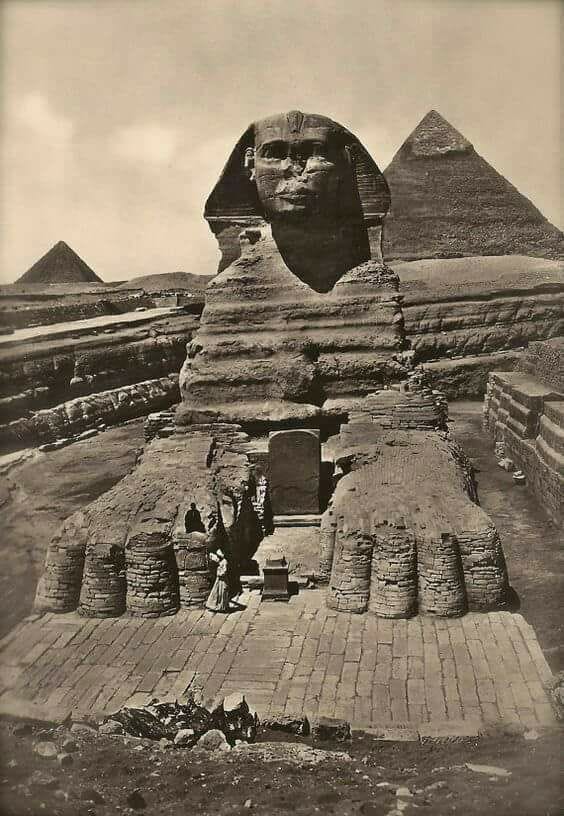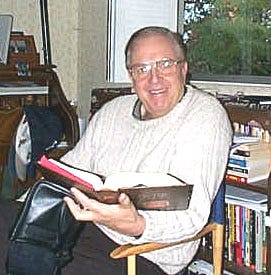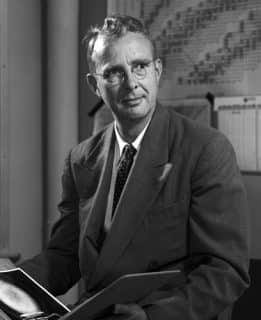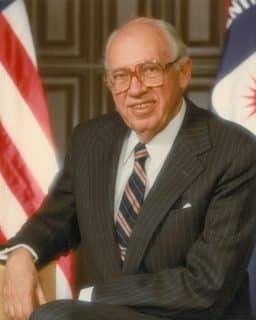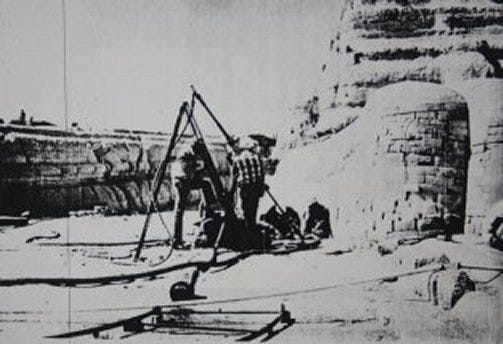The Shadow of Nemesis-3; Tales of Zahi Hawass II by Jack Heart & Orage
First published August 12, 2015, in the Human and Veterans Today. Subsequently published in Nexus Magazine Vol 23 No 1.
Editor's Note: To understand these seemingly strange interconnections between mystics, high level research, secret services, industry and secret societies one would have to look up the meaning of the word Synarchism. Synarchism, the rule by secret society, was thought out as a counter to revolutions and emancipations of common people. From its beginning around 1860, it interwove mystics with its elite clientele with secret service, with those very same mystic thinkers being on the payroll as secret agents. To do the subject justice would take another series, in this article you just see the Seilschaften at work on the Giza plateau. What should become clear too is that these self-proclaimed keepers of Ancient Egyptian Knowledge are frantically seeking just that, drilling here, there and operating with mere fragments of what was once known. - Orage, 2015
As early as 1993, in reaction to Mystery of the Sphinx, Chief Inspector Hawass demonstrated that he would now be the sole arbiter of what was science in Egypt. He expelled West’s crew from Giza and saw to it that they would never work there again.
He later explained that their work was without “scientific basis” and fueled by “American hallucinations.” [39]
In 2002 as the newly minted Secretary General of the SCA, the now officially deified Hawass pushed through a law forbidding excavation in Upper Egypt. Ostensibly all archaeological scientific inquiry in Egypt ceased right then and there and remains that way until this day.
Nothing new of value would ever be published mainstream again, nothing would ever again move on the Giza plateau, not even a lizard, without the approval of Zahi Hawass. He would now be the sole proprietor of everything ancient Egypt. Academia swooned and the mainstream media, led by Nat-Geo, lauded him as a messianic figure in archaeology.
In 2008, Abdel Hamid Qutb, the right hand man of Hawass in the SCA, was jailed for ten years and ordered to pay fines of between LE 200,000 and LE 550,000 by the Egyptian Court. Qutb was pedaling millions of dollars worth of restoration contracts — contracts that could not have been awarded without the approval of Hawass. Hawass was never questioned, even after publicly stating to the British Broadcasting Companies Arabic Service that Qutb did not have decision-making capabilities.
In a report that he issued in April of 2009 Hawass announces to the world that under his “direction, the Supreme Council of Antiquities is working to reduce the groundwater level around antiquities sites throughout Egypt.” He boasts of success in developing “a system to prevent the Great Sphinx at Giza from getting its paws wet!”
Hawass then sets the hook on the more credulous amongst his audience. “Perhaps the most important result of the groundwater project was that it enabled us to put to rest speculation about mysterious underground tunnels and chambers carved below the Sphinx by ‘ancient civilizations.’ For years, I have debated people like John Anthony West, Robert Bauval, and Graham Hancock, who say that survivors of a lost civilization 10,000 years ago left secrets buried beneath the Sphinx.”
Hawass ever the tormented scientist forced to contend with the impulses of superstitious savages adds “their supporters have insisted that we should drill holes to try and find these hidden chambers.”
Hawass then launches into his decree by stating that since there is no scientific basis for doing so he has always been against drilling in the vicinity of the Sphinx but in the course of the conservation effort it was necessary. Hawass the visionary vindicated by coincidental circumstances now delivers his theme “we found that there were no hidden passages or chambers there.” [40]
Problems with Hawass’s statement arise immediately for anyone bothering to familiarize themselves with the “system” he is using to keep the Sphinx “from getting its paws wet!” According to a separate scientific report they are pumping well over a million and half gallons of water a day from beneath the Giza plateau. There has to be a hollow chamber to tap into, a subterranean reservoir to drain, in order to collect that volume of water.
The same scientific report states that thirty-three movement sensors to monitor the Sphinx for a month during pumping operations showed that it was stable. The fact that the stability of the Sphinx is a concern indicates the hollow chamber is almost certainly beneath it, and the authorities are well aware of it. They know there is an engineering danger of the foundation of the Sphinx being undermined by the draining operation. [41]
The low-energy seismic refraction readings done by Schoch and Dobecki back in 1991 “found clear evidence of a possible void or chamber under the left paw of the Sphinx.” [42] The existence of a large rectangular chamber under the front paws of the Sphinx was confirmed in seismographic and radar tests run during May of 1996 by the Schor Foundation in collaboration with Florida State University. With the blessing of Hawass and the SCA they would return in November of 1997, February of 1998, then in September of 1998.
The results of the Schor team’s research has never been completely revealed due to contractual obligations with the SCA. But in a 2000 meeting with Bauval at the Schor Foundations Third Avenue headquarters in New York City, Dr. Joseph Schor was adamant that his seismic radar survey around the Sphinx virtually confirms the existence of a subterranean network of passages and chambers.[43]
On Art Bell’s radio show in July of 1996, Hancock had announced to the world that Schor had found no less than nine hollow chambers beneath the Sphinx, some of which contained metal objects.
Bauval would repeat this at ‘The Incident’ conference in London in October. By November both had successfully lobbied the SCA to temporarily pull Schor’s permit, much to the chagrin of NBC television network, which had planned to cover the opening of the chambers live in late 1996 or early 1997. But by 2000, both Bauval and Hancock were insisting that no such chambers had been found and publicly ridiculing anyone who suggested they had been. [first link 44]
Schor is the founder and president of the Schor Foundation, a non-profit organization dedicated to finding evidence of the lost Atlantean civilization and its Hall of Records that Edgar Cayce, America’s ‘Sleeping Prophet,’ predicted would be found beneath the Sphinx. He’s a lifetime Member of the Edgar Cayce Foundation, also known as the Association for Research and Enlightenment (ARE), and one of their principal donors.[45]
With the EAO’s blessing, under the presidency of the seemingly implacable foe of the west Nasser, the ARE was drilling holes beneath the Sphinx all the way back in 1957, operating through a woman named Marjorie Hansen. It turns out that no less a power broker in modern Egyptology than Mark Lehner was scooped into the loving arms of the ARE in 1971 by Hugh Lynn Cayce, the son and heir of Edgar Cayce.
In his memoirs, Hugh Lynn recounts how Lehner as a young radical from Berkeley showed up at one of his meditation classes attempting to impress a girl. Raised from boyhood by his parents on the prophecies of Edgar Cayce, Lehner instead impressed Hugh Lynn.
He ended up adopting Lehner as a protégé, putting him through school in Cairo and then placing him in the Nag Hammadi Project for some post-graduate work. When Lehner returned to Cairo in 1976, he was introduced to one of the ARE’s fellow puppet masters, Dr. Lambert Dolphin.
In a 1983 article in the Jerusalem Post with the self explanatory title Slouching Towards Armageddon, Links With the Evangelicals, author Louis Rappaport explains to the about to be co-opted Israelis that,
“Lambert Dolphin, heads a key-section of the world’s most massive research conglomerate, the Stanford Research Institute (SRI), a $200-million a year concern, whose main clients are the US government and corporations like Bechtel.”
Rappaport was reporting on an incident in which an SRI team led by Dr. Dolphin, a fanatical Christian millennialist, had been picked up by the Jerusalem police poking around in the Rabbinical tunnel underneath the Dome on the Rock. He was there at the behest of his equally fanatical Zionist Jewish colleagues from the Jerusalem Temple Foundation.
The SRI team had been smuggled into Israel replete with high-frequency seismic sounders, high resolution resistivity electrodes and cart mounted ground-penetrating radar. Dolphin’s team were given a stop work order by the Jerusalem police and sent on their way. The Jerusalem Post wasn’t exaggerating either.
The word Spook as a label for covert operatives may very well have been coined as an allusion to the SRI. It was ‘they’ that added Remote Viewing to America’s Central Intelligence Agency’s (CIA) spy arsenal in the early seventies.
At the same time that the SRI was introducing psychic front men like Israeli Uri Geller and New York artist Ingo Swan to the boys in the trench coats, SRI’s radiophysics division was hunting for hidden chambers beneath the bedrock of Giza using ground-penetrating radar.
Ostensibly, the SRI project had begun in 1974 and was funded by the National Science Foundation and overseen in Egypt by the Ain Shams University in Cairo. But Ain Shams University, together with UC-Berkeley, had overseen the ‘Joint U.A.R.-U.S.A. Pyramid Project,’ an earlier cooperative effort by the Egyptian and American governments, under the direction of Dr. Luis F. Alvarez, to probe beneath the middle pyramid using cosmic rays. [46]
Dr. Alvarez, it will be recalled from Black Sun Rising IV, was in all probability the mysterious Commodore Alvarez, the man who accompanied Dr. Heinz Schlicke and screened the questions during a briefing Schlicke gave the Naval Department, after disembarking from “captured” National Socialist submarine U234 in May of 1945.
As is pointed out in BSR IV, according to a memo dated December 28, 1944, calculations by chief metallurgist for Los Alamos, Eric Jette, show America would not have even half the uranium required to achieve critical mass by August 6, 1945 — the day they dropped the atomic bomb on Hiroshima.
The Manhattan Project also lacked the infrared fuses necessary to detonate the plutonium bomb they dropped on Nagasaki three days later. Declassified intelligence memoranda in the National Archives put the infrared fuses, whose last minute discovery is now credited to Dr. Alvarez, in the hands of Schlicke, who actually had to return to the submarine escorted by three American intelligence officers to get them.
There were other things on that submarine. Things that would make triggering your brand-new plutonium bomb seem trivial. Things that some might say were the seeds of the breakaway civilization. Schlicke was the caretaker and Alvarez the heir.
Schlicke was repatriated back to Germany in 1946. He would return to America to work on stealth technology under Operation Paperclip at the Office of Naval Research in Sands Point, New York. Alvarez would go on to succeed his mentors Dr. Arthur Compton and Dr. Ernest Lawrence as America’s most brilliant homegrown scientist. He would be awarded the Nobel Prize for Physics in 1968.
Like the disintegrance and ex-disintegrance rays in Shaver’s metaphorical science fiction tale, recounted in Return of the Titans, cosmic rays are a radiation that permeates the universe. They penetrate the earth’s surface down to great depths, but just like Shaver’s disintegrance rays, they accumulate in everything they touch, causing the rays to dissipate the deeper they go. Although not fully understood until 1962, cosmic rays were known to exist by the beginning of the 20th century.
In 1933, while still in his early twenties, Alvarez had been involved in crucial experiments with Compton proving cosmic rays to have a predominantly positive charge. [47] By 1965, technology had advanced far enough to be able to measure the dissipation of the rays as they arrived in a digital “spark chamber” after passing through a solid object. By properly calculating the fluctuations of the incoming rays, a facsimile of the solids’ interior could be surmised.
Plans began two years in advance to examine the middle pyramid for hidden chambers. No expenses were spared for the exploration scheduled to take place in June of 1967. The Smithsonian paid the travel expenses, and the U.S. Atomic Energy Commission (AEC) footed the bill for the state of the art detection equipment developed at Lawrence Berkeley National Laboratory.
Egypt threw in a building right next to the pyramids to be used as a lab, and the Department of Antiquities stumbled over themselves cooperating. But due to the Six Day War, it had to be put off until early 1968. Interestingly enough, outside of 1968 being the same year Alvarez was awarded the Nobel Prize, of the fourteen multinational scientists heading up the project, only Ahmed Fakhry was an archaeologist. Although over a million readings were taken, only “19 percent of the pyramid’s volume” was probed and “no unexpected features were discernible.” [48]
This was not the AEC’s first foray into the subterranean abyss. In Black Sun Rising IV, when the astonished third army first breached National Socialism’s hypogeum citadel in Ohrdruf, Colonel Robert S. Allen, General Patton’s go-to Intelligence officer, described a technologically impossible underground construction that confounded the Americans.
The man who built it, mostly with slave labor, Franz Xaver Dorsch, a survivor of the original beer hall putsch and a founding member of the National Socialist Party, was never charged with war crimes at Nuremberg. He would continue on for the next forty years as a titan in the suddenly resurgent German industry.
The company he founded, Dorsch Gruppe is currently Germany’s largest independent planning and consulting company. Dorsch Gruppe and its affiliated company Dorsch Qatar LLC recently “won” the contract to build the futuristic Lusail City on a piece of desert wasteland.
The brand-new city will come complete with an absurdly ostentatious stadium so Qatar can host the 2022 World Cup in style. In their CEO Statement Dorsch Gruppe boasts to shareholders that “the project, designed for 450,000 inhabitants, will cost approximately 45 billion US dollars, which is around 12 percent of the total construction volume of Germany in 2012.” [49]
By April 17 of 1945, the AEC had inspected what lay beneath Ohrdruf, removed unspecified technical equipment and blown up the entrances. Nobody would ever go down there again. American authorities have since classified all 1945 documents relating to Ohrdruf for a minimum of a hundred years.[50] General Patton would be dead by the end of 1945.
John McCone and Stephen Bechtel Sr. built ships together during WWII and were later investigated for war profiteering. McCone became chairman of the AEC in 1958 where he remained until 1961, when President Kennedy tapped him to be the director of the CIA in hopes that he would check the growing nuclear threat of Israel. Kennedy would not live to be reelected.
During McCone’s three year tenure as Chairman of the AEC, classified nuclear secrets were freely exchanged with Bechtel. Four prominent AEC officials left their government positions to work for them and Bechtel was chosen in 1959 to build the first nuclear power plant in America. They would build many more, and since then some have labeled the AEC’s relationship with Bechtel as incestuous.
Even before McCone became its director, Bechtel was closely affiliated with the CIA. Their financial adviser John Simpson had close relationships with the CIA’s first civilian director Alan Dulles and his brother John Foster Dulles, who was Secretary of State from 1953-1959. Since then, CIA and Bechtel personnel have been largely interchangeable. [51]
Other Bechtel alumni who became CIA directors are Richard Helms under Nixon and William Casey under Reagan. As an officer in the OSS, the CIA’s predecessor, Casey had been instrumental in transplanting National Socialism to America under the aegis of Operation Paperclip after WWII.
Aside from being responsible for the construction of most of the present-day American military’s infrastructure, Bechtel specializes in underground construction. Its most famous project was the tunnel beneath the English Channel connecting Great Britain to the European mainland.
They also built the NORAD base inside the Cheyenne Mountain, along with untold above top-secret bases like Area 51 in Groom Lake. It was Bechtel that built Saddam Hussein’s underground bunker system when he was still America’s ally.
Dubya was not yet even done laying waste to Iraq when from behind closed doors he awarded Bechtel a no-bid contract estimated to be worth six-hundred and eighty million dollars to rebuild it. How Bechtel collected on the other hundred billion the contract would eventually be worth is impossible to trace.
Bechtel family members frequently own the majority of shares in ‘other’ companies such as the Fremont Group, a San Francisco-based Investment Corporation, formally known as Bechtel Investments. The Freemont Group is partially owned by the bin Laden family, who also own a massive Saudi Arabia-based Construction Company.
Unlike Dorsch Gruppe, Bechtel doesn’t have to report to shareholders. It’s the largest privately-owned corporation in the world. Riley Bechtel, a close personal friend of George W Bush, runs it and it’s owned by the Bechtel family, whose home base is in the San Francisco area. The Bechtels are rumored to run the Bohemian Grove, whose host, the Bohemian Club, is coincidentally also based in San Francisco. [52]
In all likelihood, nobody but Riley and a few close personal friends know what Bechtel is really up too. But in 2014 under the name of Consolidated Nuclear Security LLC (CNS), Bechtel, over the official objections of the then current manager, Nuclear Production Partners LLC, began its transitional takeover of the management of Pantex and Y-12, a manufacturing operation and a storage facility run by the National Nuclear Security Administration (NNSA). The contract is estimated to be worth $22.8 billion, and there is an option for CNS to manage the NNSA’s Savannah River Tritium Operation.[53]
Alvarez always maintained that he found nothing in 1968. But in an interview with the London Times Dr. Amr El Goneid of Ain Shams University let out that the pyramid was permeated with a mysterious energy that “defied all known laws of Physics.” Alvarez vehemently denied it and accused the London Times of making the whole thing up. In his writings, Dolphin credits Alvarez for “suggesting” that he and the SRI bring their resources to bear and develop the ground penetrating radar technology necessary to further explore the pyramids and subsurface Giza.
By early 1977, Dolphin and the SRI were doing the initial resistivity work on the bedrock of the Sphinx for Lehner and the ARE. The ARE was convinced that the entrance to the hall of records would be found beneath the right front paw of the Sphinx as Edgar Cayce had predicted. Sure enough, Dolphin located anomalies there. He would publish those results in a brief report titled “Application of Modern Sensing Techniques to Egyptology.” But of the “much more thorough” resistivity work done in seventy-eight Dolphin says “none of us has been able to locate our logs and print outs.”
It wasn’t until 1999 that Dolphin would write a brief account of the 1978 expedition and post it to his web site. Hugh Lynn has a far more detailed and slightly different recollection of the expedition in his memoirs. It would turn out the ARE had shot six hours of sequences from the expedition in eight-millimeter color film. Of course “copies and full transcripts of the sound tapes” somehow turned up in Bauval’s hands along with Lehner’s “personal account of what went on at Giza in 1978.” [54]
Excerpts have been spliced together and appear in the beginning of Bauval’s film montage, Searching for The Hall of Records of Atlantis. They verify much of Hugh Lynn’s account and leave little room to doubt the rest.
The 1978 expedition was financed by the ARE. Mark Lehner was the ARE’s on site supervisor with Hugh Lynn personally overseeing the whole thing. Holes were drilled and a camera lowered into the bore holes, all with the blessing of the EAO.
On the film, a young Hawass and Lehner can be seen mugging for the cameras as Hugh Lynn narrates. At the base of the sphinx, in an improvised desert lab, SRI technicians merrily operate what looks to be suitcase versions of today’s laptops.
At one point, Hawass and Lehner are shown holding court over the drill in matching psychedelic sports jackets and early Mod Squad hairdos flirting with ARE coeds. Hawass, in a preview of things to come, leans on the drill like he is James Dean.
The film excerpts end with Hugh Lynn lamenting that work was halted after drilling only one hole under the Sphinx’s front paw. “I had understood that we would be able to drill from the other side and try to cross to pick up the anomaly that the instruments indicated was here.” [55]
Everybody involved seems to have a different reason why the 1978 expedition was halted. But an internal memorandum issued by the ARE states “toward the end of the season, serious problems began to develop between the SRI team and the other major patron who contracted for the survey of the pyramids and who was, at the same time, the party heading the drilling operations.” [56]
The other major patron could only have been Recovery Systems International, a company founded by Dr Joseph Jahoda specifically for the purpose of drilling beneath the Sphinx. Jahoda is just one more fabulously wealthy lifetime member of the ARE with important links to America’s military industrial complex.
His company the Astron Corporation is a major contractor of the Department of Defense and NASA. It specializes in producing radio communication systems.
Sixty feet down, Jahoda’s team had struck granite. According to Jahoda, his team had been halted from drilling further by the Egyptian military at gunpoint. Granite is not indigenous to the Giza Plateau; the nearest source for it is Aswan six hundred miles to the south.
The only way it would be present beneath the Giza Plateau was if it had been used in the construction of a subterranean edifice. [first link 57]
Regardless, as would become his modus operandi, Hawass wasn’t done yet. He started new drilling operations, this time at the foot of the Sphinx Temple for the Institute of Underground Water of the Egyptian Ministry of Irrigation. Fifty-five feet down, he struck red granite.
Hugh Lynn wanted to excavate the granite but he would die in 1982. In his memoirs, he says he would need Hawass to advance in the Egyptian government in order to obtain the necessary permits to do it. He felt the best way to do that would be to move Hawass along in the ranks by getting him a doctorate from an Ivy League school.
In the memoirs Hugh Lynn states “I got him a scholarship at the University of Pennsylvania in Egyptology, to get his Ph.D. I got the scholarship through an ARE person who happened to be on the Fulbright scholarship board.” And of Mark Lehner and the ARCE Hugh Lynn says, “I gave them a little money and Mark got attached.” [58]
At the turn of the 21st century, the ARE remained firmly entrenched on the Giza Plateau as testified to by the Schor expeditions. Dr. Bakr, the man whose job Hawass took in ninety-four, wasn’t exaggerating when he said the Giza plateau was run by a mafia. The ARE, the ARCE and the SCA are all fiercely loyal to each other. No one talks to the media, not since Hugh Lynn died, except when Hawass tells their official lies. But someone did break the Omertà.
Thomas Danley, an acoustic engineer and consultant for NASA as part of the 1996 Schor expedition, was doing acoustical experiments in the Great Pyramid that were being recorded by a film crew led by American documentary producer Boris Said. Said had produced Mystery of the Sphinx in 1993. The SCA had given them permission to stay inside the pyramid for four days.
Danley took the opportunity to climb up into Davidson’s Chamber and have a look. He couldn’t help but notice Hawass had extended an old excavation by Caviglia, who had already tunneled ten feet, some thirty feet down on a course to intersect Gantenbrink’s door.
He made the news public on both the internet and radio. When questioned by the press about it in his office in July of 1997, Hawass produced a statement signed by Said that he had seen no tunnel.
But by early 1998, Said was doing radio interviews admitting there was a tunnel and claiming he saw no harm in the SCA burrowing around the world’s most important structure in secret. After all the pyramids belong to Egypt, he added “they are tunneling all over the plateau.” [first link 59]
Shadow of Nemesis: Pyramids of Giza and Lies of Empire by Jack Heart & Orage
Shadow of Nemesis 2: Tales of Zahi Hawass by Jack Heart & Orage
The Shadow of Nemesis-3; Tales of Zahi Hawass II by Jack Heart & Orage
Shadow of Nemesis 4: NASA and The Prophet of Ascensionism by Jack Heart & Orage
Shadow of Nemesis 5: "Weird Scenes Inside the Goldmine" by Jack Heart & Orage
Citations
[39] Hancock, Graham. “Tunnels and Chambers Underthe Great Sphinx” Information on the Great Pyramid and Sphinx. The Modern Riddle of the Sphinx. Web.28 Apr. 2015.
[40] Coppens, Phillip. “The Egyptologist, the Sphinx and the cover-up.” (2009): n. page. Web. 13 May. 2015.
[41] Ibid
[42] Schoch, Dr. Robert M. “Geological Evidence Pertaining to the Age of the Great Sphinx.” The Official Website of Robert M. Schoch. Web. 2015.
[43] Bauval, Robert G. “A meeting with Dr. Joseph Schor in New York.” PE 2000. n. page. Web. 15 May. 2015.
[44] Picknett, Lynn, and Clive Prince. “Secrets in the sand.” The Stargate Conspiracy. (1999): n. page. Web. 4 Jun. 2015. First link.
[45] Bauval, Robert G. “A meeting with Dr. Joseph Schor in New York.” PE 2000. n. page. Web. 15 May. 2015.
[46] Bauval, Robert G. “Chapter 9 .” Secret Chamber. (2002): n. page. Web. 23 May. 2015.
[47] “International Space Science Institute.” Spatium11. (November 2003): n. page 4. Web. 23 May. 2015.
[48] Alvarez, Luis W and others. “Search for Hidden Chambers in the Pyramids.” (Feb, 1970): n. page. Web. 23 May. 2015.
[49] Röder, Jürgen, and Olaf Hoffmann. “CEO Statement.” Dorsch Gruppe. n. page. Web. 24 May. 2015.
[50] Arndt, Rob. ” The Mysteries of Ohrdruf .” Paper Panzers and Wonder Weapons of the Third Reich. n. page. Web. 23 May. 2015.
[51] “Bechtel’s Dubious Connections.” n. page. Web. 25 May. 2015.
[52] “BECHTEL UNVEILED .” n. page. Web. 26 May. 2015.
[53] Mcbride, Jim. “New contractor gets started at Pantex Plant.” amarillo.com . (2014): n. page. Web. 29 May. 2015.
[54] Bauval, Robert G. “Chapter 9 .” Secret Chamber. (2002): n. page. Web. 23 May. 2015.
[55] “Searching for The Hall Of Records of Atlantis.” Capricorn Radio & TV. n. page. Web. 31 May. 2015.
[56] Bauval, Robert G. “Chapter 9 .” Secret Chamber. (2002): n. page. Web. 23 May. 2015.
[57] Picknett, Lynn, and Clive Prince. ” Secrets in the Sand.” The Stargate Conspiracy. (1999): n. page. Web.4 Jun. 2015. First link.
[58] Bauval, Robert G. “Chapter 9 .” Secret Chamber. (2002): n. page. Web. 23 May. 2015.
[59] Picknett, Lynn, and Clive Prince. “Tunnel Vision.” The Stargate Conspiracy. (1999): n. page. Web. 4 Jun. 2015. First link.

